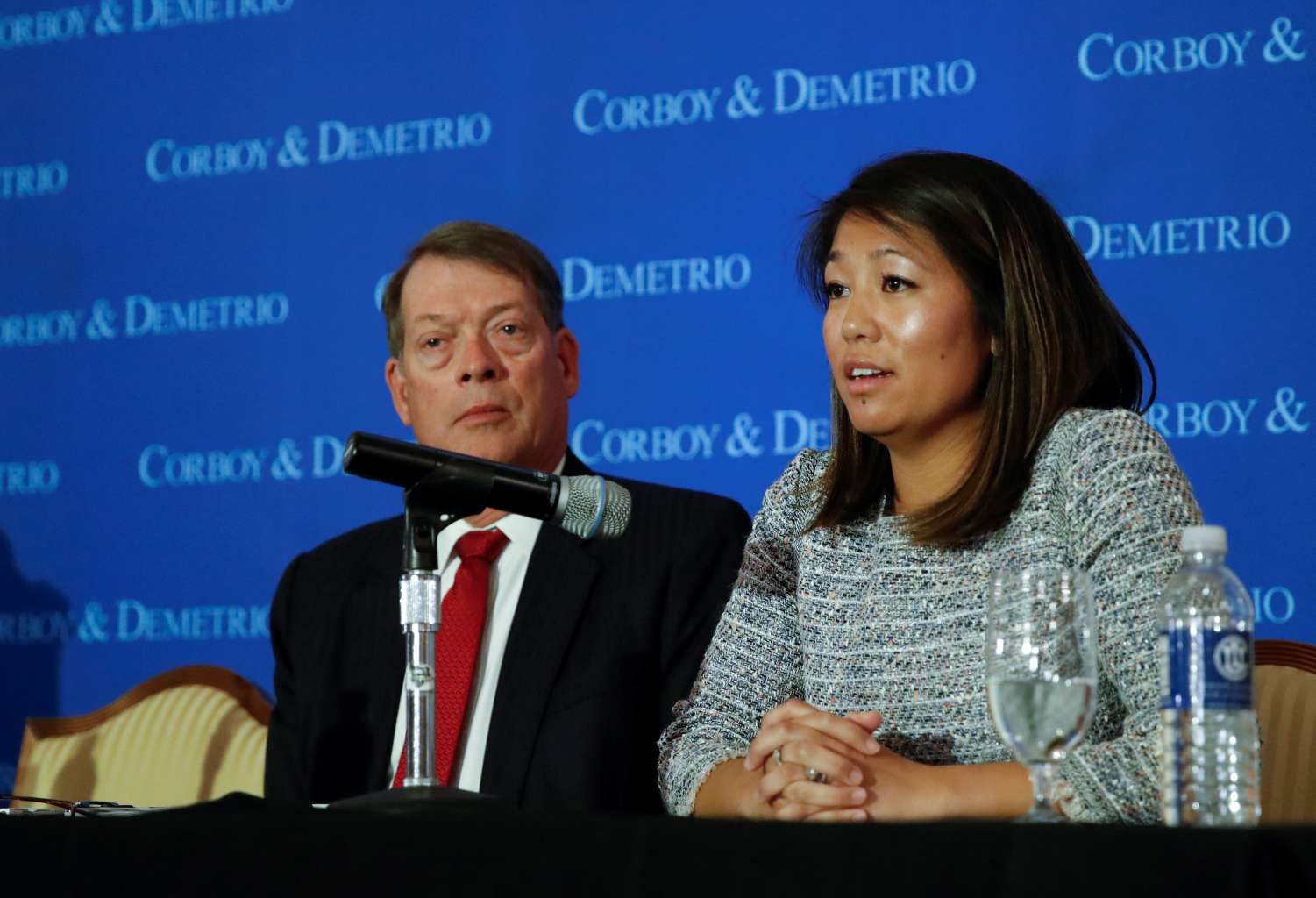Airlines defend overbooking after United Airlines incident
Sign up now: Get ST's newsletters delivered to your inbox

Crystal Dao Pepper, daughter of Dr. David Dao, speaks during a news conference, April 13, 2017.
PHOTO: REUTERS
Follow topic:
BERLIN (REUTERS) - International airlines have defended the overbooking of flights after the practice was thrown into the spotlight by videos of a United Airlines passenger being dragged off a plane in Chicago this week.
The incident on flight 3411, in which law enforcement officials were called in to remove the passenger to help make way for crew members, has proved embarassing for United and its chief executive Oscar Munoz but also raises questions about policies across the industry.
Overbooking, where airlines sell tickets for more seats than available to account for the likelihood of no-shows, is a common practice and some US lawmakers have called in the wake of the United incident for new rules to make it more difficult. Yet carriers say it allows them to keep costs, and thus ticket prices, down.
"If airlines were no longer allowed to overbook, fares would likely rise as airlines would have to pass on the costs of more empty seats to consumers," the International Air Transport Association (IATA) said in a paper published on Thursday (April 13).
"Banning the practice of overbooking will reduce already thin margins, and could reduce connectivity in turn," IATA said.
Behind overbooking is a degree of calculation.
Airlines use historical flight data to calculate the expected no-show rate for each route. For example, business travellers may switch flights at the last minute, but those travelling on summer holidays are less likely to change plans.
ALTERNATIVE FLIGHT
If more people than expected show up, airlines ask for volunteers to miss the flight in exchange for compensation. If not enough people volunteer, airlines will select passengers to bump on to an alternative flight, typically before boarding.
In the United States in 2016, around 475,000 passengers, or 0.07 per cent of travellers, were denied boarding due to overbooked flights. Of that, 40,000 were classed as involuntary.
The US Transportation Department said it was the lowest rate of involuntary denials since it began tracking the issue in 1995.
Delta Air Lines CEO Ed Bastian defended the practice on Wednesday, saying its denied boarding rate was only about 1 in 100,000 passengers in 2016.
To its industry proponents, overbooking has paid off.
In 2005, planes were on average 75 per cent full. That has increased to around 80 per cent in the last couple of years. IATA said this month that ticket prices have fallen about 10 per cent in real terms over the past year.
Not everyone follows the policy. JetBlue and Ryanair make a point of saying they do not overbook flights, though the former's denied boarding rate has risen recently after it switched to smaller planes, meaning fewer seats were available than planned.
For the industry as a whole there remains a risk of alienating consumers. Liberum analyst Gerald Khoo said airlines get it right most of the time, but noted: "Ultimately, this episode is a failure of United's procedures, but it has shone an unwelcome light, for the airlines, on one of the industry's'dark arts'".

